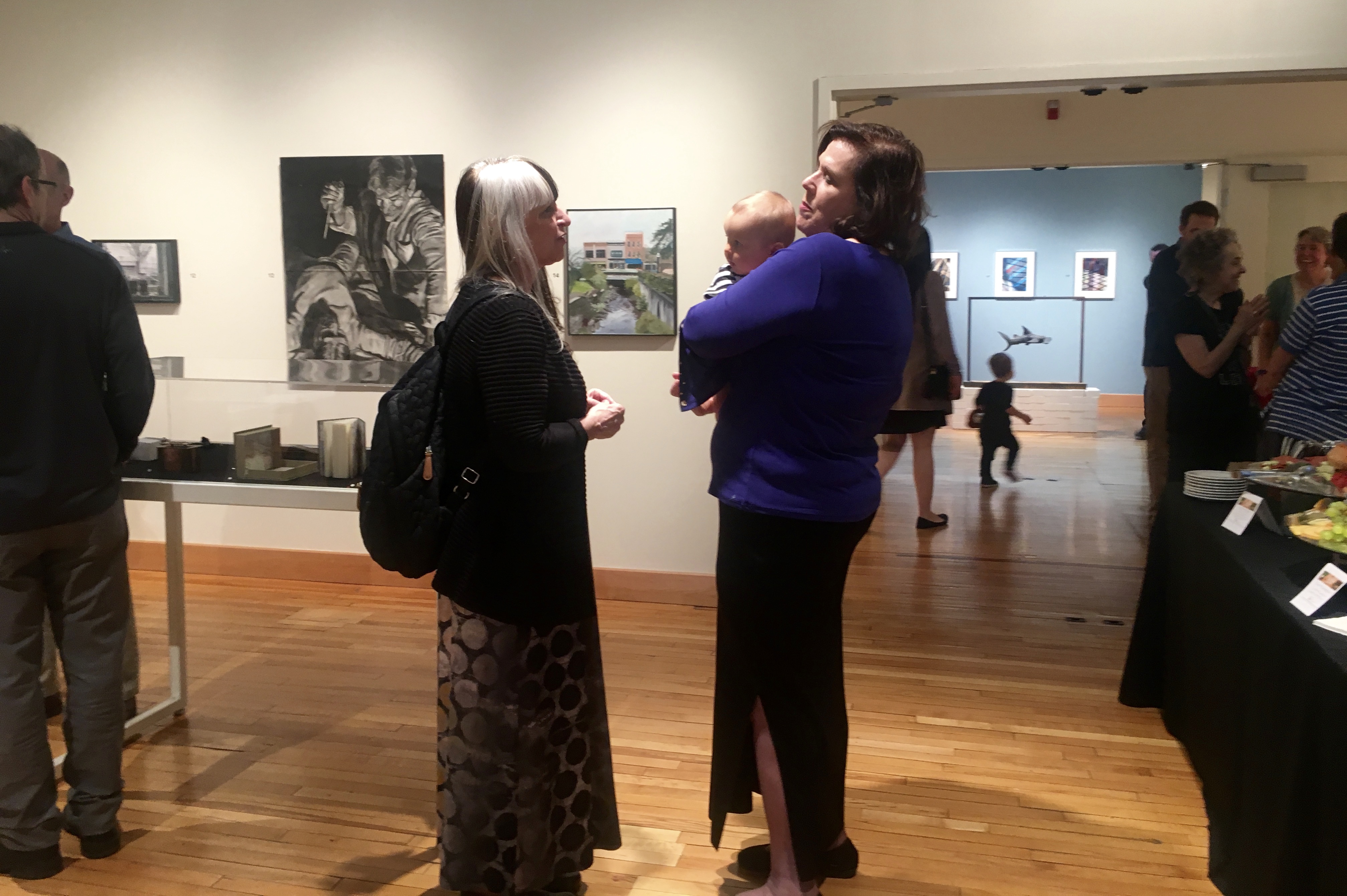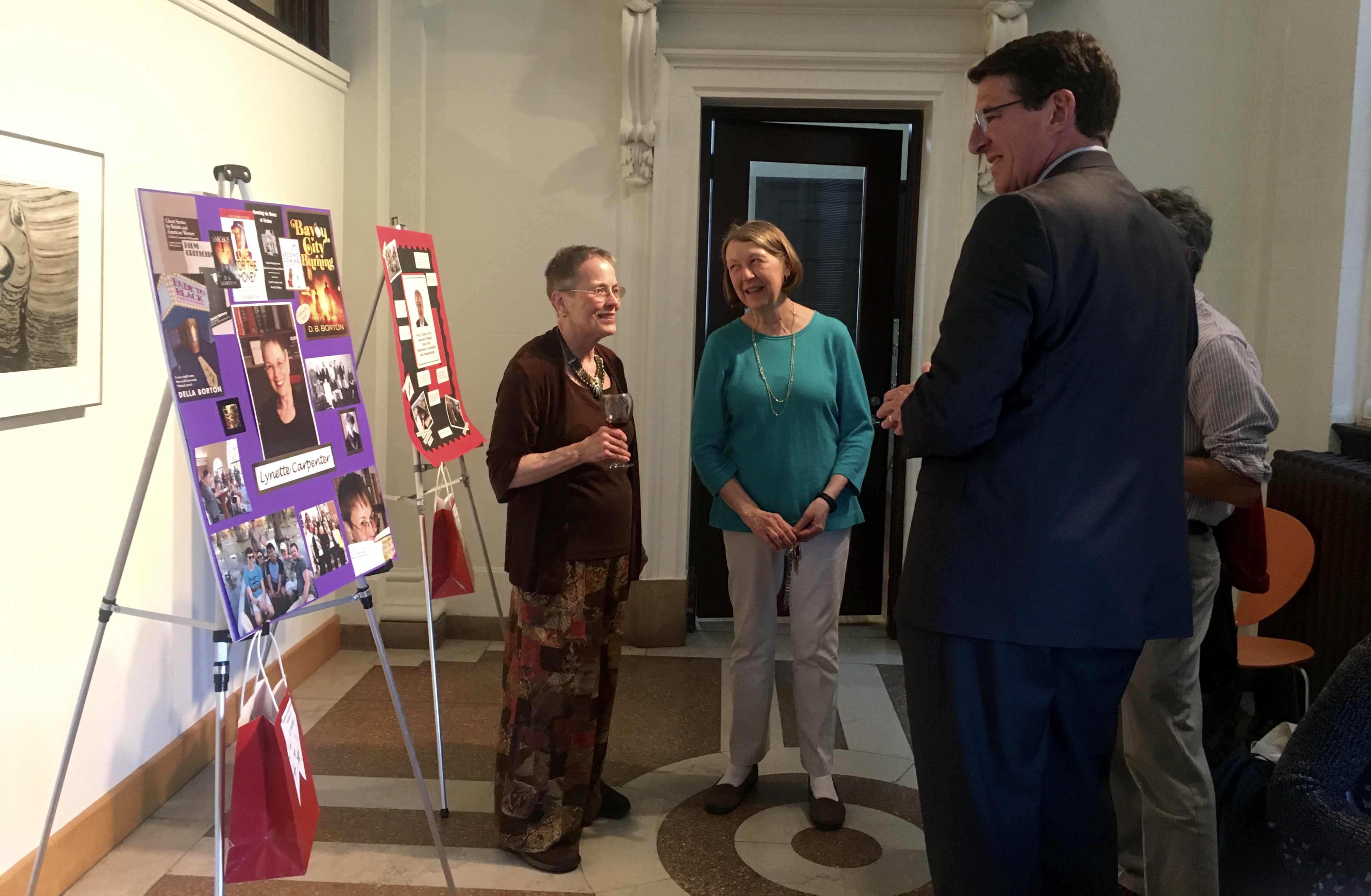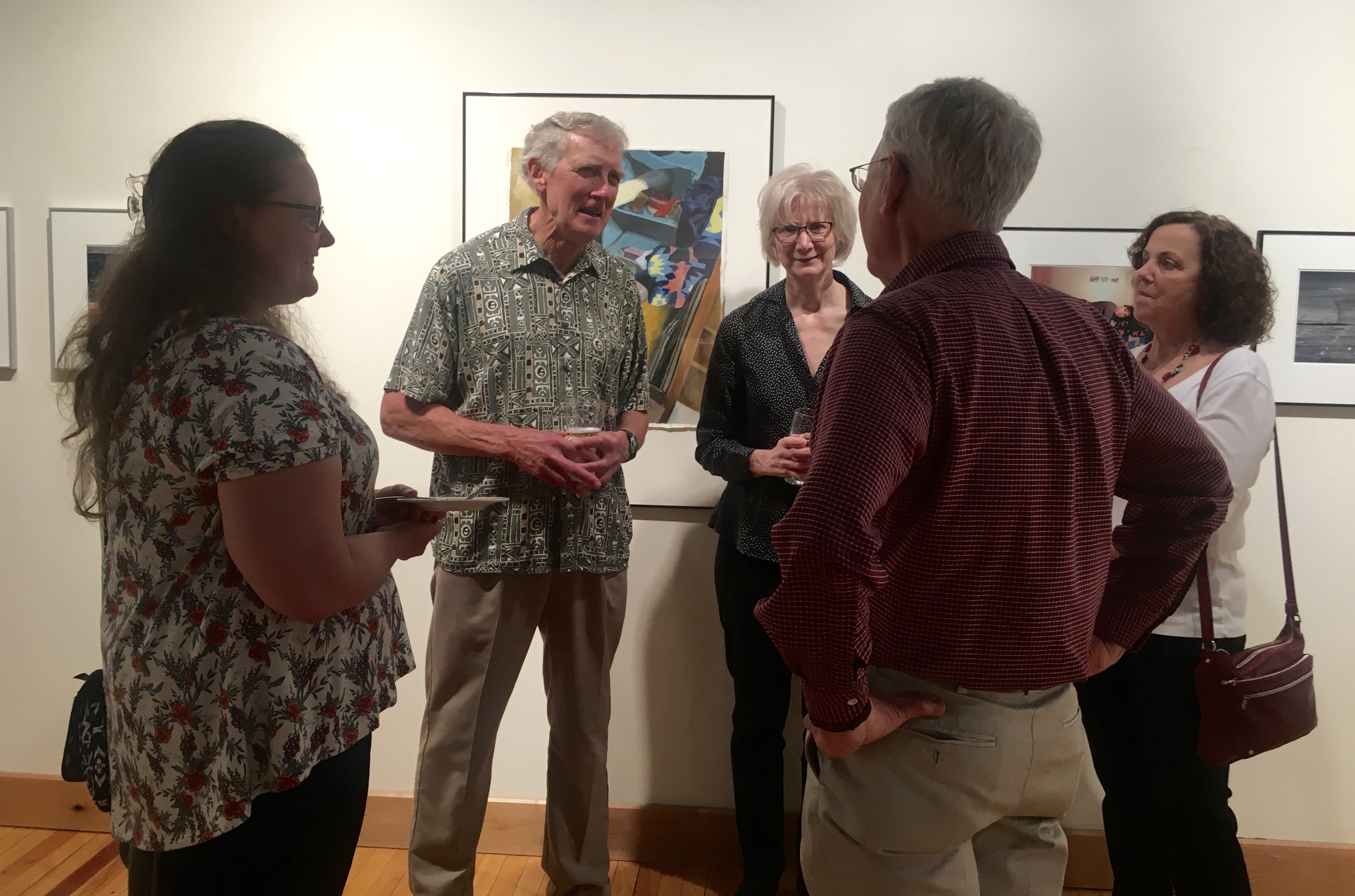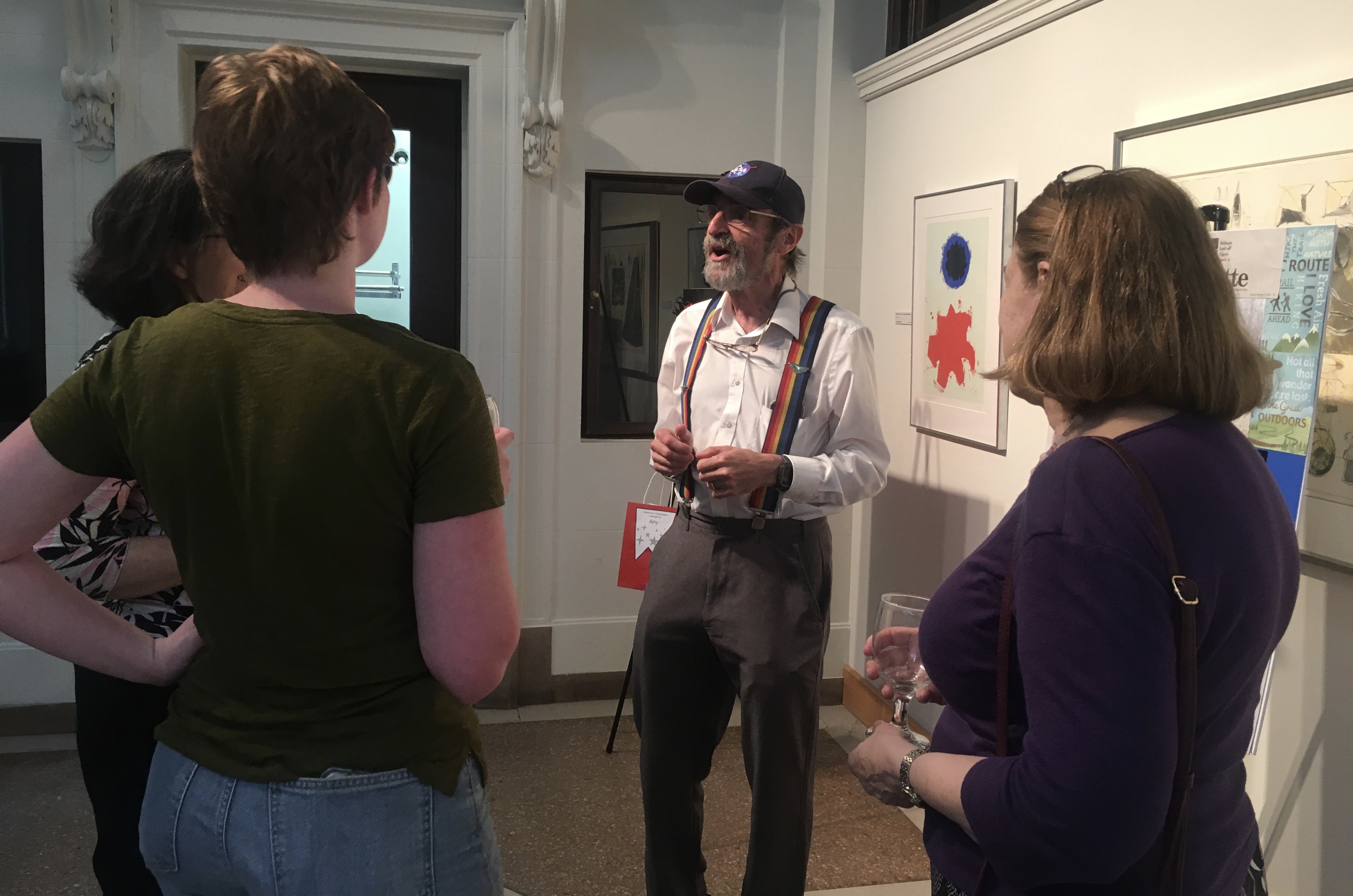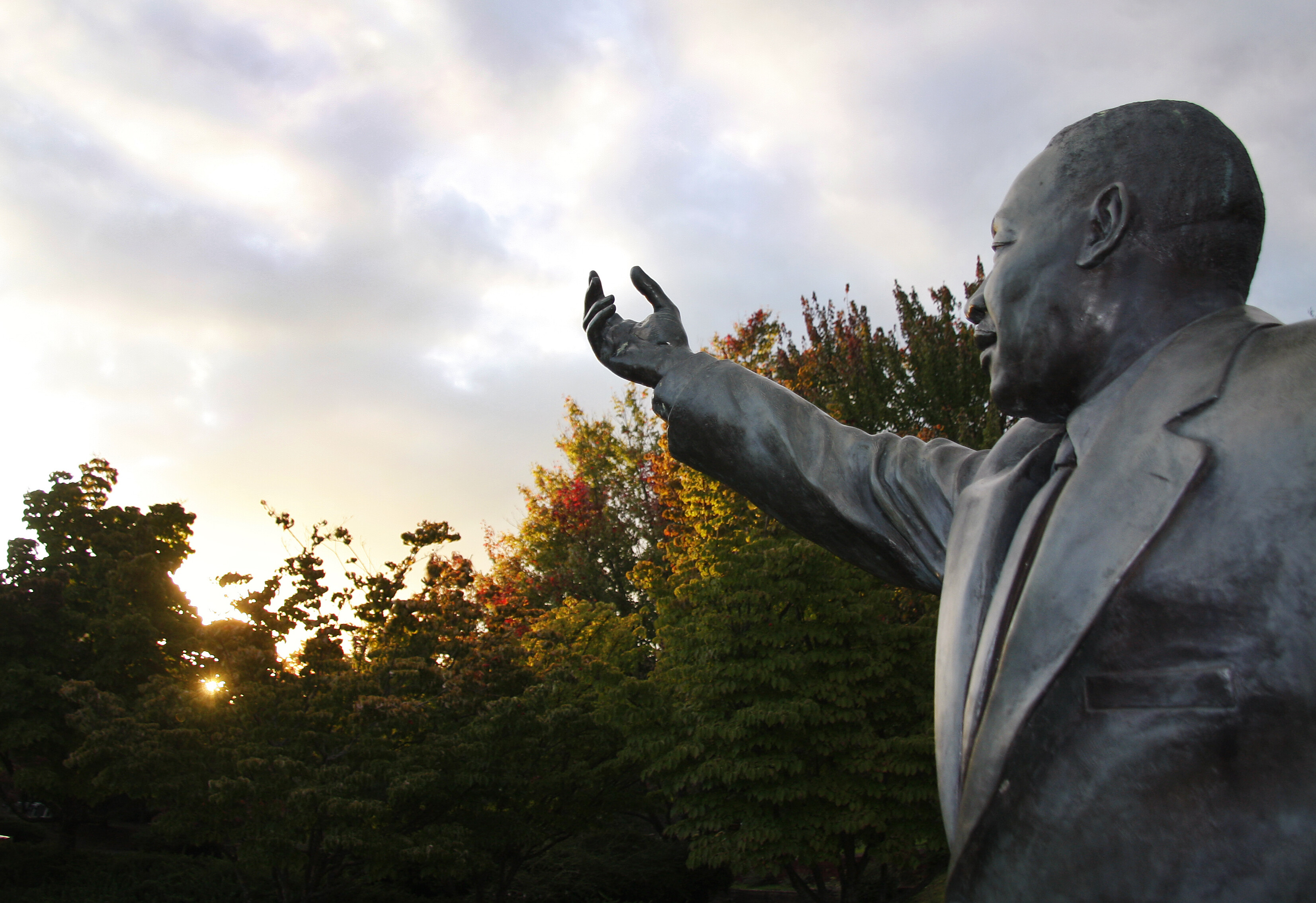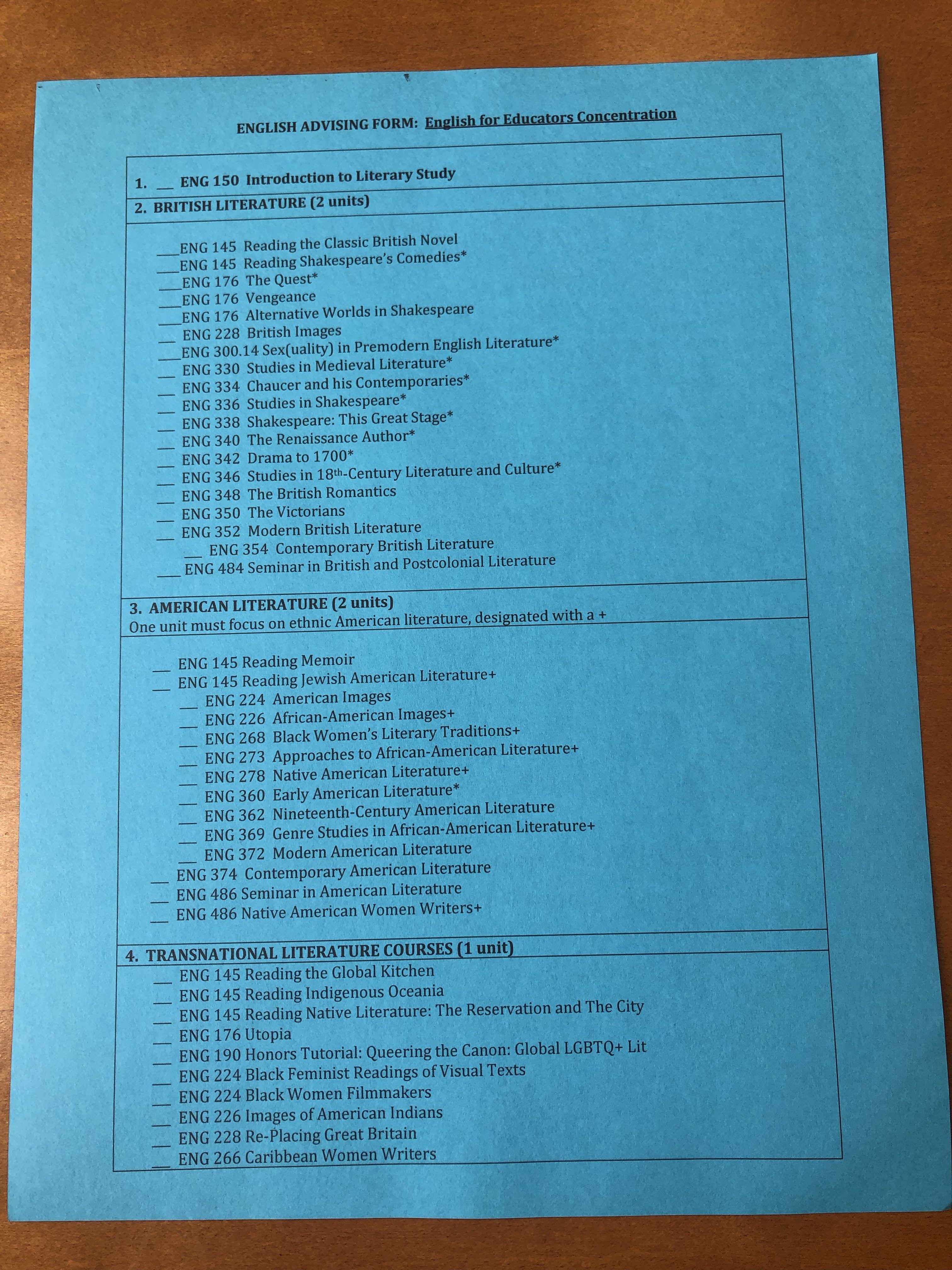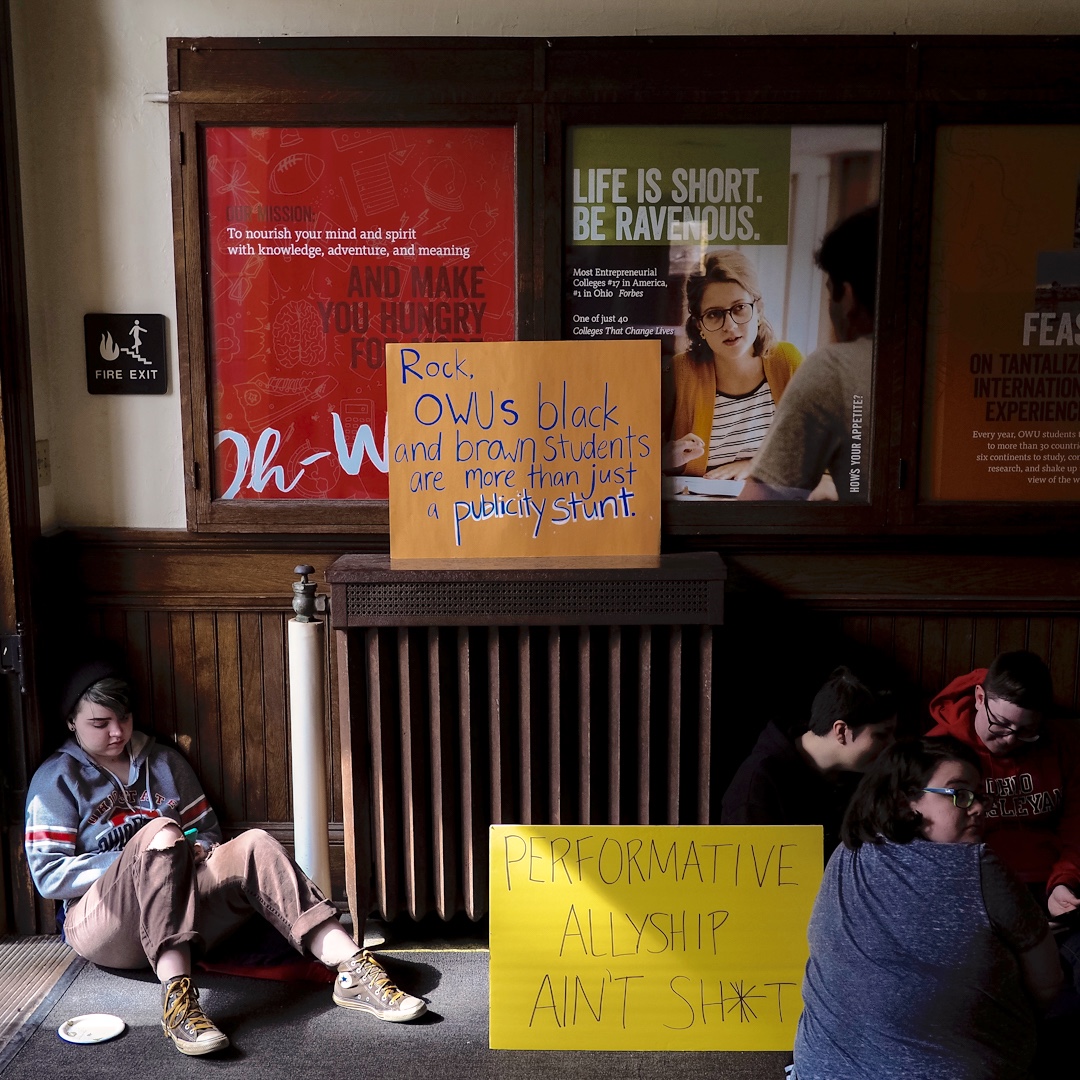Amy McClure has decided to retire. McClure was an Education professor, the chair of the Education department and the director of the Honors Program of Ohio Wesleyan. She has a enormous passion for books and has published seven children’s books. McClure has also received Outstanding Teaching Rewards. She will be dearly missed!
Category: News
Lynette Carpenter is retiring
Lynette Carpenter has decided to retire. Carpenter was an English Professor and she specialized in 19th and 20th century of Women’s American literature and film. She taught classes such as American literature, freshmen writing, film and etc. Carpenter has also published 11 mystery novels! She will be dearly missed!
Paul Kostyu is retiring
Paul Kostyu has decided to retire. He was the head of the Journalism Department and taught classes such as media law, photojournalism, editing and design and etc. Dr. Kostyu was also nominated for the Pulitzer Prize in 2004 and has worked for papers out of state. He was at the Ft. Lauderdale Airport during the shooting and was able to take photos which were spread through the Associate Press. He will be dearly missed!
John Gatz retiring
John Gatz has decided to retire. Gatz was a Zoology professor and taught classes such as evolution, vertebrates, population, community ecology and etc. He also has published works about thermobiology of jellyfish, sexual selection in frogs and toads, and is now researching about beavers preferences on lodge sites. Gatz will be dearly missed!
Tom Burns retiring
Thomas Burns has decided to retire after being a part-time English professor for the past 21 years. Burns has also taught astronomy classes and is the director of Ohio Wesleyan’s Perkins Observatory. He will be dearly missed!
Traveling in the steps of MLK will be a new option for students
Updated April 24, 2019
By Shay Manuela
Transcript correspondent
slmanuel@owu.edu
Next Spring, Ohio Wesleyan students will have the opportunity to literally walk in the footsteps of Rev. Martin Luther King Jr.
John Durst, associate professor of sociology and anthropology, and Professor of Education Paula White will be teaching a travel-learning course in Spring 2020.
The course, which is titled “The March Continues: The Current Fight for Justice and Equality,” will examine the civil rights movement through the lenses of social justice and activism.
A special focus will be placed on understanding the historical, cultural, economic, and political dynamics of inequality and the concepts of power, privilege, and intersectionality, according to the Ohio Wesleyan website.
Class members will be traveling to Mississippi and Alabama from March 7-14, 2020, where they will visit several sites along the National Civil Rights Trail. The trail, which spans across fourteen states, features locations that played a significant role in events of the Civil Rights Era.
The civil rights movement was a mass protest movement against racial segregation and discrimination in the southern United States, according to Britannica. The primary goal of the movement, that mainly took place during the 1950s and 1960s, was for African-Americans to gain equal rights under the constitution.
Sites that will be visited along the trail include the Edmund Pettus Bridge in Selma, Alabama; the Dexter Avenue Baptist Church, where Rev. Martin Luther King Jr. began his pastorate; the Rosa Parks Museum; the Southern Poverty Law Center; and The National Memorial for Peace and Justice, a memorial dedicated to victims of white supremacy.
One of the goals is for students to draw parallels between race relations of the past and present, Durst said.
“We look at these civil right struggles and racial tensions as something of the past, yet striking similarities remain evident today,” Durst said. “One could argue that since the civil rights movement ended, there has been a lack of progress. The story is not over.”
The desire lies in getting that point across, Durst said. “This course gives the opportunity to use history to ask students ‘this is what the racial disparity represented back then—how much farther are we today?’,” Durst said.
The main motivation for the course is to have the students feel the history, rather than just learning it, Durst said.
“I am a firm believer that when you stand on the Edmund Pettus Bridge, where nonviolent activists were beaten, it has an impact beyond simply reading a factual recollection of it,” Durst said.
The concept of travel-learning courses has been designed to give students the opportunity to connect classroom instruction to real-world experiences.
Merrick Mentor and junior Brandon Stevens said, “The travel-learning courses offer a guided experience to students to dig deeper into a topic with somebody who is an expert on the subject.”
Applications for the Spring 2020 travel-learning courses will be posted at the beginning of the Fall semester.
English department to add new concentration for students
By Azmeh Talha
Transcript reporter
aatalha@owu.edu
English majors at Ohio Wesleyan University’s (OWU) will be offtered two concentrations in the major, creating a clearer path to graduation.
The concentrations that will be offered are English for Educators and a Creative Writing Concentration.
Associate Professor of English, Nancy Comorau was one of the people that worked towards getting the concentrations approved.
“I thought, what if we just had a clear set of requirements that fit what’s needed for licensure, fit what’s needed for an English major and give students one path to graduation,” Comorau said.
Under the old system, students who wanted to be English teachers and finish with licensure had to take a number of literature courses, Comorau said. The names of the courses however, were unclear and were different from the way the English department talked about where the discipline of English is going.
One of the unclear categories in the department was “ethnic or women writers” Comorau said. Comorau questioned what ethnic really means and asked faculty in the education department.
Comorau met with Professor Campbell Scribner, a former associate professor in the education department to clarify what these terms mean.
“I asked somebody in education to meet with me and I said well does ethnic mean minorities within a majority of culture, African American, Latinx etc,” Comorau said. “Or does ethnic mean nonwhite.”
Another confusing category in the English department world literature. Although it was called world literature, the category contained mainly work written by European authors.
Literature from Africa, South Asia and The Caribbean was not a part of any world literature courses. This led to Comorau questioning whether literature from this part of the world is considered to be world literature.
Mark Allison, associate professor and chair of the English department said getting the concentration approved was a collective effort of the department.
There was some ambiguity that students had to confront about which classes satisfied which requirements. This clarified what classes students should take to satisfy their requirements, making it more manageable for students, Allison said.
“Nancy Comorau in particular deserves credit for really working, collaborating with the education faculty to create the new English for educators concentration,” Allison said.
New additional courses will be offered for the creative writing concentration such as fiction, creative nonfiction and poetry, Allison said. Courses offered will be both lower and upper level classes.
“We’ve effectively almost doubled the strength of our creative writing options,” Allison said.
The motion to create the creative writing resolution was approved on Feb. 18, 2019.
The statement of rationale to create this concentration mentioned the benefits of the concentration.
“… We believe a unique major will better serve and prepare our creative writers for professional careers that extend far beyond Ohio Wesleyan University.”
The statement also mentioned the concentration will “not only attract students but retain them once they matriculate.”
New courses that will be offered are ENG 200.3: Fiction I and ENG 315: Creative Nonfiction II.
Uber horror story sheds light on OWU safety
Updated April 15, 2019
By Leah Crawford
Transcript correspondent
lccrawfo@owu.edu
OWU students have begun re-evaluating their feeling of safety when traveling on campus, following the kidnapping and murder of a female student who mistook the wrong car for her Uber at the University of South Carolina.
“What happened to that girl in South Carolina is unthinkably tragic and so scary to imagine.” senior Elise Duldner said. “I use Uber to get home from the bar several times in a month because I’m uneasy walking home. If Uber’s aren’t safe any more it makes me wonder what our school and local law enforcement actually do to keep us safe from situations like this.”
After hearing from female students on campus, OWU Public Safety (PS) and the Delaware Police Department (DPD), there is a clear disconnect in the sense of security felt on campus between the students and those in authority. Many students question or doubt OWU’s efforts to protect students while on nights out.
“I don’t believe Ohio Wesleyan is doing its best to keep women safe here on campus,” sophomore Caroline Hancock said. “Especially when it’s a Saturday night and women are walking home from the bar on a dimly lit street such as Spring Street. This is a real issue that we face every weekend, which sketchy street are we going to walk down this time to get home?”
Spring Street is the most direct route from downtown Delaware to the residential side of campus where most students live. This street is known amongst students as being the most dangerous street to walk down on the weekends. Women are advised almost immediately when they arrive to campus as freshmen to avoid this street and walk almost any other route home.
Chief Robert Wood, who has been head of PS for 13 years, assures students that while situations like those in South Carolina are tragic, they are extremely rare.
“The fact that you’re walking down Spring Street and somebody runs out and grabs you and throws you in a truck, that’s almost unheard of,” Wood said.
According to the 2017 National Center for Victims of Crime report, 11,000 college campuses representing more than 78 million students, reported criminal victimizations as of 2014. This report also states that one-third of students are the victims of stalking. While the sense of security on and around campus is the mindset of PS, the anxiety of traveling at night seems to be a constant among several women on campus.
“I don’t feel comfortable walking around campus, sometimes during the day, but never at night and I don’t think PS does enough to instill a sense of safety and comfort over campus if something were to happen.” senior Sasha Vasquez said. “Though it is inconvenient for all the parties we go to, I ask for rides whenever I can.”
Some female students do feel somewhat safe on campus but this is not due to the efforts of law enforcement or PS. Many women like juniors Erin Bitzer and Allison Andrews say they feel safe on campus due to the fact that it is a small school in a small town, or the fact that they are friends with male fraternity members and athletes.
“I would say that I feel safe but I believe that’s more to the credit of this being a small town and small school,” Bitzer said.
“I generally feel safe on campus, but mostly because of Tri-Delta and the fact that I’m friends with a lot of the frat guys on campus,” Andrews said.
The party scene on campus has not diminished, but has changed location and execution.
Two years ago, every house on Fraternity Hill would have been throwing a party with students meandering from one to another all night. Now, following the termination of three fraternities on campus, parties have moved to off campus homes where PS holds no jurisdiction.
“PS thinks campus is safe because they’ve forced us to move our social lives to off campus. We’re too scared to party on campus because of the consequences,” Vasquez said. “It’s to the point where we’d rather deal with the actual police than PS, so yeah now campus is safe, whatever that is supposed to mean.”
This relocation of social experiences like parties to off campus homes, makes it DPD’s territory. DPD works very closely and assists in the safety and monitoring of the OWU students on and off campus.
“I consider Delaware a safe community, but also understand that anything can happen anywhere, anytime,” Captain Adam Moore of DPD said.
Many students find comfort with DPD and appreciate their efforts when patrolling on the weekends. DPD often gets called for noise complaints related to the off campus parties of students. Students and the officers of DPD have a mutually respectful relationship. When officers show up to a house where a party is located, students are quick to turn down the music and cooperate with whatever guidelines the police deem necessary. The students also enjoy posing for photographs with the officers who patrol Clancey’s Pub downtown during the weekend.
Students seem to think PS is out of touch with the real threats on campus.
“The stuff we’ve had where people have gotten in trouble, they’ve gotten into a car with somebody they don’t know, they met somebody online and they went off campus and went to the house and met them,” Wood said.
Many students are less worried about members of the town of Delaware and more so their fellow students.
“You’re supposed to feel safer on campus, but sometimes it’s the people on your campus that you know, that are dangerous and it’s very unsettling,” senior Hannah Joseph said. “It honestly sucks that’s the reality we have to live with as women on a college campus and really as women in this world.”
This disconnect has to do with the overwhelming sentiment that the officers of PS don’t care about the well-being of the students.
“I would never call PS for help because they take forever to show up and they really don’t seem to care about us,” said Andrews.
“Come to think of it, I don’t recall hearing much about ways to keep women safe or overall safety just by the University,” Bitzer said.
Contradictory to the feelings of the student body, both PS and DPD have several resources for the students to utilize. PS teaches a Rape Aggression Defense (RAD) class several times throughout the year as well as shorted RAD introductory seminars. PS offers complimentary rides for students on a case by case basis.
They also recommend traveling in groups or pairs and let someone know about your travel plans, such as where you are going, when you are leaving and when you will return. Also, they both want to ensure students that it is always better to call for help than try to handle a dangerous situation alone in fear of disciplinary or legal actions.
“At the end of the day, no consequence the police, courts, school, or parents can levy, will be worse than someone being the victim of a major crime or severely injured. If you are in trouble, call for help,” Moore said.
Chief Wood agrees with the sentiment. PS also abides by the amnesty policy, which is described in the OWU student handbook as such, “Students who seek medical attention for themselves or others because of the over-consumption of alcohol or other drugs will not be charged with violations of the alcohol or illegal drugs policies through the Office of Student Conduct and Community Standards. These same protections will be extended to the student for whom medical attention is sought.”
“If you call for help for yourself or your friend you’re not going to get in trouble,” Chief Wood said.
The phone number for PS is 740-368-2222 or 2222 form any campus phone. The number for DPD is 740-203-1111. In case of emergency, always call 911.
OWU fraternity raises money for fellow student and moms foundation
By Leah Crawford
Transcript correspondent
lccrawfo@owu.edu
Men and women of the Ohio Wesleyan University community came together this past Saturday to raise money for U.S. troops, and support one of their own.
The brothers of Phi Gamma Delta (Fiji) hosted a soccer tournament for the students of OWU to participate in called Kick It with Fiji on March 30. The event, benefitting two different organizations, was held in the Edwards Gym due to inclement weather. Each team donated a minimum of $50 to participate with all proceeds being donated to the philanthropic causes.
“Serving others is one of the main principles of Greek Life but especially for Fiji,” Jordan Auriemma, Fiji’s philanthropy chair said.
The event’s purpose was to raise money for The United Services Organization (USO) and the Heidi Steitz educational fund. Franklin D. Roosevelt founded USO in 1941 and it currently assists over 4.9 million members of the military and their families. The donations made to the Heidi Steitz educational fund were made in honor of Heidi Steitz who recently lost her battle with cancer.
“I love my friends in Fiji and it was so thoughtful of them to donate some of their proceeds to my mom’s educational fund,” Kenzie Steitz, a junior in Delta Delta Delta (TriDelta) at OWU said. “It means so much to [me] and my family and we greatly appreciate the generosity of the boys of Phi Gamma Delta.”
Members of both the Greek and Non-Greek communities of OWU were invited to participate. The tournament was held in a round robin style with the semifinals being held at the end of regular play. Then there was the final game where the ladies of Delta Gamma (DG) took home the gold, winning the tournament overall.
“Fiji’s soccer tournament was such a fun event! I loved being able to participate while being surrounded by the Greek community,” DG sophomore Katie Konopka said. “Winning definitely felt good but being able to support someone within our own community was what really mattered.”
TriDelta followed DG in second place and the ladies of Kappa Kappa Gamma (KKG) came in third.
OWU students address racism head on
By Transcript Staff
owunews@owu.edu
Updated March 10, 2019
Ohio Wesleyan University (OWU) students held a sit-in March 1 at University Hall to protest against the treatment of minority groups on campus.
The sit-in predominantly occupied the main hall of the ground floor of University Hall, as well as Slocum Hall for a brief period. Organized by senior Daniella Black, the event was held to not only raise awareness for unheard voices, but to also start a conversation about the University’s treatment of its minority students.
The morning of the protest, the student organizers sent out a letter to the campus. In the letter, students listed their complaints and solutions to campus-wide issues regarding race. A survey was also attached, allowing others to say what they identify as an issue on campus.
“I hope that this protest starts conversations about diversity, inclusion and justice on campus and that they continue as the years go on,” senior Sarah Mattick said. “And result in changes for the better.”
Mattick said multiple recent incidents as causing the protest, including the vandalism of a diversity bulletin board in Hayes Hall and OWU Public Safety shutting down a House of Black Culture party an hour before it was registered to end.
“[Admission] tours were told to avoid entering University Hall, as some visitors might get the wrong idea involving the intentions of the protest,” said freshman Micaela Kreutzer, an admissions worker.
Senior Cindy Huynh said she loved that students and faculty passing through took the protest in stride and were open to having conversations with protestors about their perspectives.
“I think it’s important to be here to show that we see them … there are people who want to make things better,” associate politics and government professor Ashley Biser said. Biser attended the protest because she considered it an opportunity to learn and listen to students who do not feel that their voices are being heard.
Benji Acuna, a sophomore and protestor, said all of the aforementioned events for the protest, as well as a speak out by the OWU Student Inclusion and Advocacy Committee involving unreported incidents against minority groups.
“The issues the students are bringing up are important and urgent and I think my office, because we primarily serve people of color, in particular, is a major stakeholder in supporting movements like this and trying to ensure that action happens as a result,” Charles Kellom, assistant dean of office of multicultural student affairs, said.
Rock Jones addressed the campus on multiple occasions, by sending an email and tweeting during the day. Jones also addressed the protesters multiple times during the day.
“I am grateful for the students’ work and for their desire to collaborate with me, the officers, their fellow students and the faculty and staff to explore where we are now, where we want to be, and how we get there together,” President Rock Jones said during the protest and a campus-wide email. “I am grateful to the members of the faculty and staff who stopped by to visit with the students today, listening to them as they shared their concerns and their suggestions.”
On March 7, Jones emailed the campus community, saying that he will meet with students again to discuss the issues raised at the sit-in. Jones also linked to a webpage for student recommendations on the school website.
